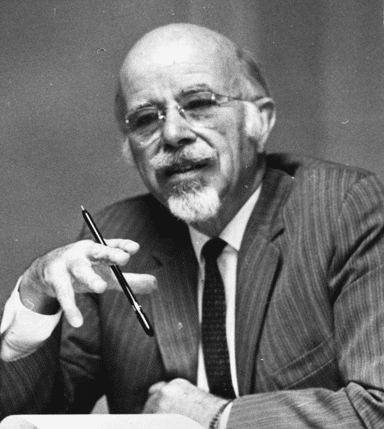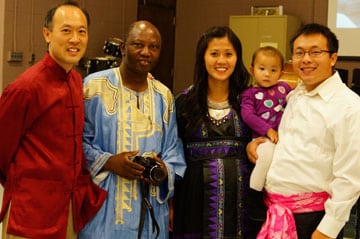Is It a Heterogeneous or a Homogeneous Unit Principle?
by Gary Corwin
More than a half-century ago, Donald McGavran introduced the world of missions to the homogeneous unit principle, the idea that church-planting efforts can be much more effective if focused on a specific ethno-linguistic people.
More than a half-century ago, Donald McGavran introduced the world of missions to the homogeneous unit principle, the idea that church-planting efforts can be much more effective if focused on a specific ethno-linguistic people. Rather than a generalized approach expecting people to overcome unnecessary cultural and ethnic obstacles in order to embrace the gospel, the goal was to enable people to confront Christ and his claims without that additional burden. This approach, described most fully in Understanding Church Growth (1970), became the dominant framework undergirding church-planting strategy for the last several decades.
Much more recently, however, Erik Hyatt, in “From Homogeneous to a Heterogeneous Unit Principle” (EMQ, April 2014) has articulated a strong biblical and practical case for an alternative approach. Based largely on his own experience with a church-planting endeavor in Minneapolis (and the breadth of cultural pluralism that he described in “Middle America” Minneapolis was somewhat shocking), Hyatt describes the great advantages that have become apparent in establishing a church intentionally designed to attract persons representing a multitude of cultures and ethnicities.
Is this something new, or is it an adaptation of something that has been visible for decades—the appeal of outreach focused on sociological groupings of people and not just ethno-linguistic ones? In the circumstances which Hyatt describes, there are a multitude of ethno-linguistic groups represented in a church plant designed to attract minority ethno-linguistic persons who share the common bond of being aliens in a land where they were not born, or in the case of their children, a land not dominated by cultural norms that are second-nature to their family.
A parallel example of this phenomenon has been the success over many decades of International Churches in many of the world’s major cities, particularly in the Global South. These churches have had remarkable success in showing forth the breadth of Christ’s Church, made up of a wide variety of those from every nation and people. The often-overlooked phenomenon is that the members of these churches, as ethnically diverse as they usually are, also represent a unique people group themselves. They are a heterogeneous amalgam of people who share a significant common characteristic—they see themselves as internationals—people who have experienced and understand the culture and ways of a globalized modernity. They are in effect a homogenous unit of ethnically heterogeneous peoples.
Another example of this phenomenon is the student and young people movements to Christ found on many university campuses and in many urban centers around the world. In these circumstances, a common educational and social experience, steeped in a common generational culture, more than overcomes the common ethno-linguistic bonds that tend to dominate in their parents’ lives.
In his article, Hyatt points out how impactful the witness of recent and not-so-recent immigrants is among others who share the dramatic experience of cross-cultural international migration. What they share in that experience goes a long way in overcoming the cultural barriers that would otherwise naturally tend to exist.
The main point of Hyatt’s article is to explain why even the best-intentioned outreach to minorities of mono-cultural churches will usually fall short, and why planting new heterogeneous churches is both more effective and more affirmed biblically. But what he describes also exhibits why ethnically heterogeneous churches, where the experience or aspirations of the members are more homogeneous (e.g., migration, alien in a new land, desire for a new sense of belonging), can be equally exceptional in evangelism and making disciples.
So in effect, it is not that the homogeneous principle (“that birds of a feather prefer to flock together”) has ceased to be a truism of evangelism and church planting, but that ethnicity is not the only characteristic that binds people together. This really is the point of the biblical passages that emphasize the new oneness that exists among God’s people in Christ—that union with him is a stronger glue holding people together than the usual bonds that impact humanity (nation, people, tribe, or language). Common experience and aspiration are also attractive magnets that can draw the lost to believers and their message. Intentionally planting churches where that can happen most easily is simply good missiology and good practice.
I don’t believe anything I have said contradicts what Erik has written, but it is to assert a word of caution lest the casual reader assumes the homogeneous unit principle is dead, or at least replaced by a heterogeneous unit principle. While the typical application of the homogeneous unit principle has been to ethno-linguistic peoples almost exclusively, and that is clearly inadequate to explain all that is taking place, the basic principle involved is still true—people prefer to associate with people like themselves, and keeping that in mind can be a huge help humanly speaking in making evangelistic and church-planting efforts more effective.
Gary Corwin is associate editor of EMQ and staff missiologist with the international office of SIM.
EMQ, Vol. 50, No. 4, pp. 262-263. Copyright © 2014 Billy Graham Center. All rights reserved. Not to be reproduced or copied in any form without written permission from EMQ editors.


